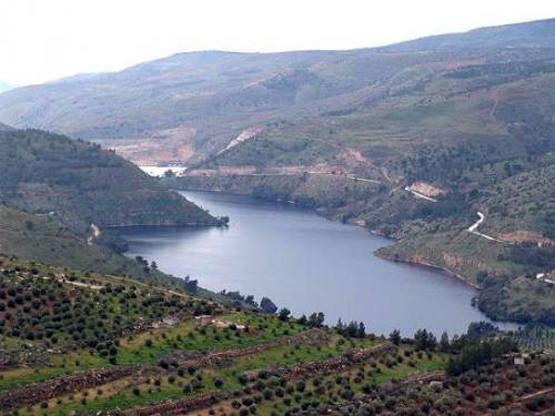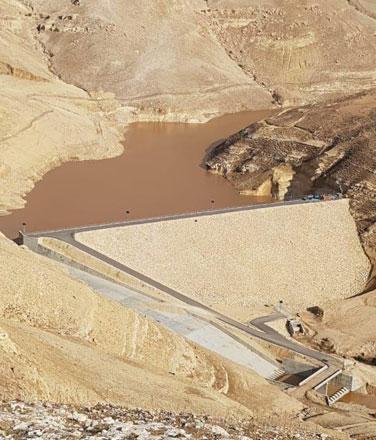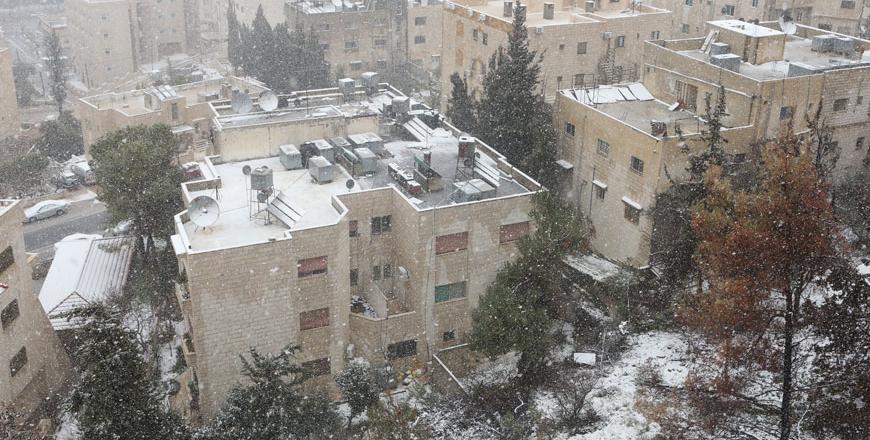You are here
Polar front subsides, depression moves to northeast Iraq — JMD
By Hana Namrouqa - Jan 17,2019 - Last updated at Jan 17,2019
AMMAN — Authorities evacuated, between Wednesday night and Thursday morning, 131 snowbound people, after a deep, fast-moving polar front brought heavy snow to the northern and central parts of the Kingdom, according to authorities.
Snow started falling over the mountainous areas of the northern region on Wednesday afternoon, and by evening, the central parts, including the capital, also received heavy snow that quickly blocked streets in areas located 900 metres above sea level.
By Thursday noon, all of the country’s roads were open to traffic, according to the Public Security Department.
Ras Munif in Ajloun Governorate, 76 kilometres northwest of Amman, recorded the highest snow accumulation at 15cm, according to Raed Rafid Al Khattab, head of the weather forecast section at the Jordan Meteorological Department (JMD).
The high mountains of the northern and central parts of the country received snow on Wednesday and Thursday morning, but light showers of snow were recorded in the southern region, Khattab noted.
“In Amman, 4-8cm of snow was recorded, while in Salt, in Balqa, snow accumulation reached 5cm. Snow was also recorded in several other parts of the country, such as Jerash and east of Mafraq, but the JMD has no stations there to produce data on snow accumulation or rain amounts,” Khattab told The Jordan Times on Thursday.
The weather forecast said that impact of the polar front and the depression started to subside as of Thursday noon, when the depression moved to northeast Iraq.
Heavy snowfall left many motorists snowbound, according to the Civil Defence Department (CDD), which said that it has evacuated snowbound people, either to safe ground or to their places of residence.
“A total of 131 people were evacuated to safety, while our directorates across the country dealt with 847 health emergencies,” a CDD press officer said.
The snow and rain between Wednesday and Thursday channelled 3 million cubic metres (mcm) of rainwater into the country’s dams, according to Minister of Water and Irrigation Raed Abul Saud, who noted that the southern dams did not receive any additional amounts.
“The dams held, until Thursday morning, a total of 116mcm or 34.5 per cent of their total capacity of 336mcm,” Abul Saud said in a statement e-mailed to The Jordan Times.
The heavy rain and melting snow also forced authorities to suspend pumping water from the Zarqa-Maeen Water Pumping Plant, according to a statement by the Jordan Water Company (Miyahuna) e-mailed to The Jordan Times on Thursday.
Suspension of water pumping from the Zarqa-Maeen plant will affect water supply to neighbourhoods in southern Amman, Miyahuna said, indicating that water supply will be back to normal as mercury levels in water reaching the plant drop.
Related Articles
AMMAN — The Kingdom's 14 major dams now hold 28 per cent of their total capacity, according to the Ministry of Water and Irrigation, which i
AMMAN — Official reports and site inspections proved that the Zarqa-Maeen Dam, rumoured to have caused or worsened late October’s Dead Sea t
AMMAN — The Kingdom will remain on Tuesday under the impact of a depression and a polar front, with heavy rain and snow forecast, the Jordan


















